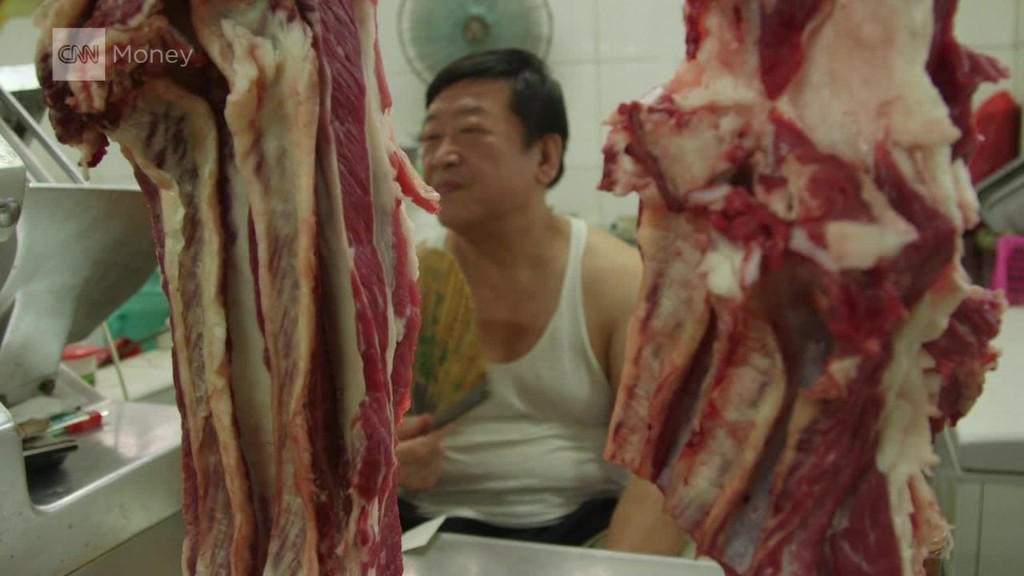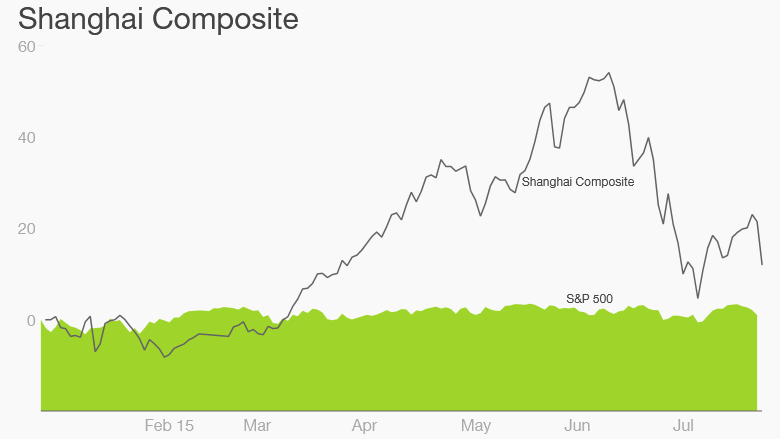
Uh oh. Here we go again.
China's Shanghai Composite index shed 8.5% on Monday, a bone-rattling decline that raises questions about the government's ability to prevent a crash.
Beijing managed to stabilize markets with a dramatic rescue in late June and early July, intervening in a number of ways to limit losses for investors.
But the rout has now resumed: Monday's slump was the biggest daily percentage decline since 2007.
The vast majority of companies listed in Shanghai, including many large state-owned firms, fell by the maximum daily limit of 10%. Losses in Shanghai, and on the smaller Shenzhen Composite index, accelerated into the close. Shenzhen, which is heavy on tech stocks, closed down 7%.
Investors are worried about a possible withdrawal of stock market support by Beijing, and signs of a sharper slowdown in China's economy.
Industrial profit data released Monday indicate that factories in the world's second-largest economy are losing momentum. Profits dropped 0.3% in June, compared to the same period last year, the government said.
On Friday, an early measure of China's manufacturing activity for July came in below analyst expectations. The reading was the lowest in 15 months.
China's stock markets have been extremely volatile this year.
The first signs of trouble came in June, after the Shanghai Composite peaked at more than 5,100 points, a gain of roughly 150% over the previous 12 months. When the bubble burst, the index lost 32% of its value in just 18 trading sessions.
Related: I own China stocks and I'm worried

Beijing reacted forcefully. The People's Bank of China cut interest rates to a record low, regulators suspended new market listings, and threatened to throw short sellers in jail.
The country's market regulator, the China Securities Regulatory Commission, organized the purchase of shares using cash supplied by the central bank. Companies were allowed to suspend their own shares -- at one point 50% of all listed stocks were frozen.
Following the intervention, markets enjoyed two weeks of relative calm before Monday's trading session.
Yating Xu, an economist at IHS Global Insight, said the severe stock market decline could pile more pressure on company profits in the months ahead, requiring further intervention by the government to support growth.
"Poor profit growth indicates persistent weak domestic demand in China, and adds pressure in reaching some kind of stabilization in the second half [of 2015]," Xu said.
"More targeted stimulus, especially fiscal policy, may still be expected to support China's infrastructure investments in the coming months."


